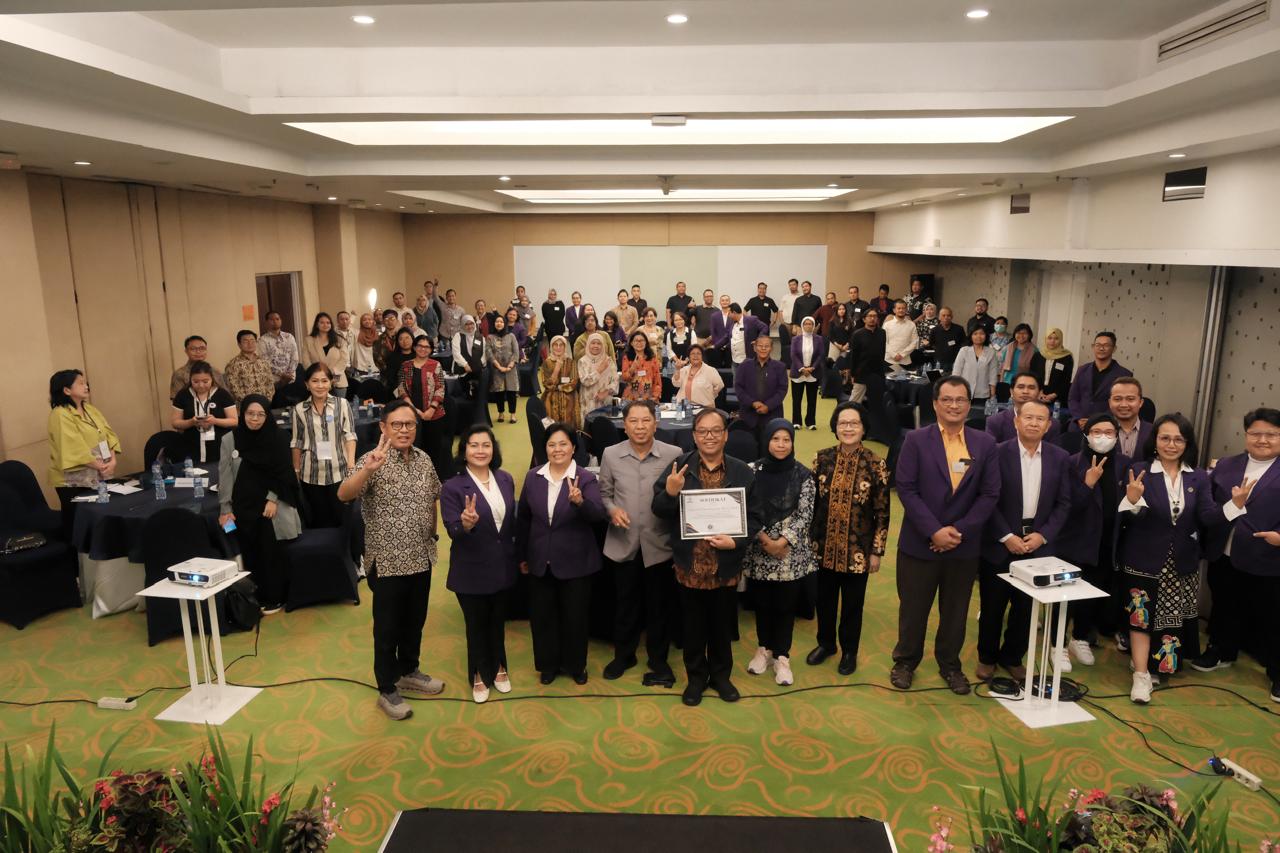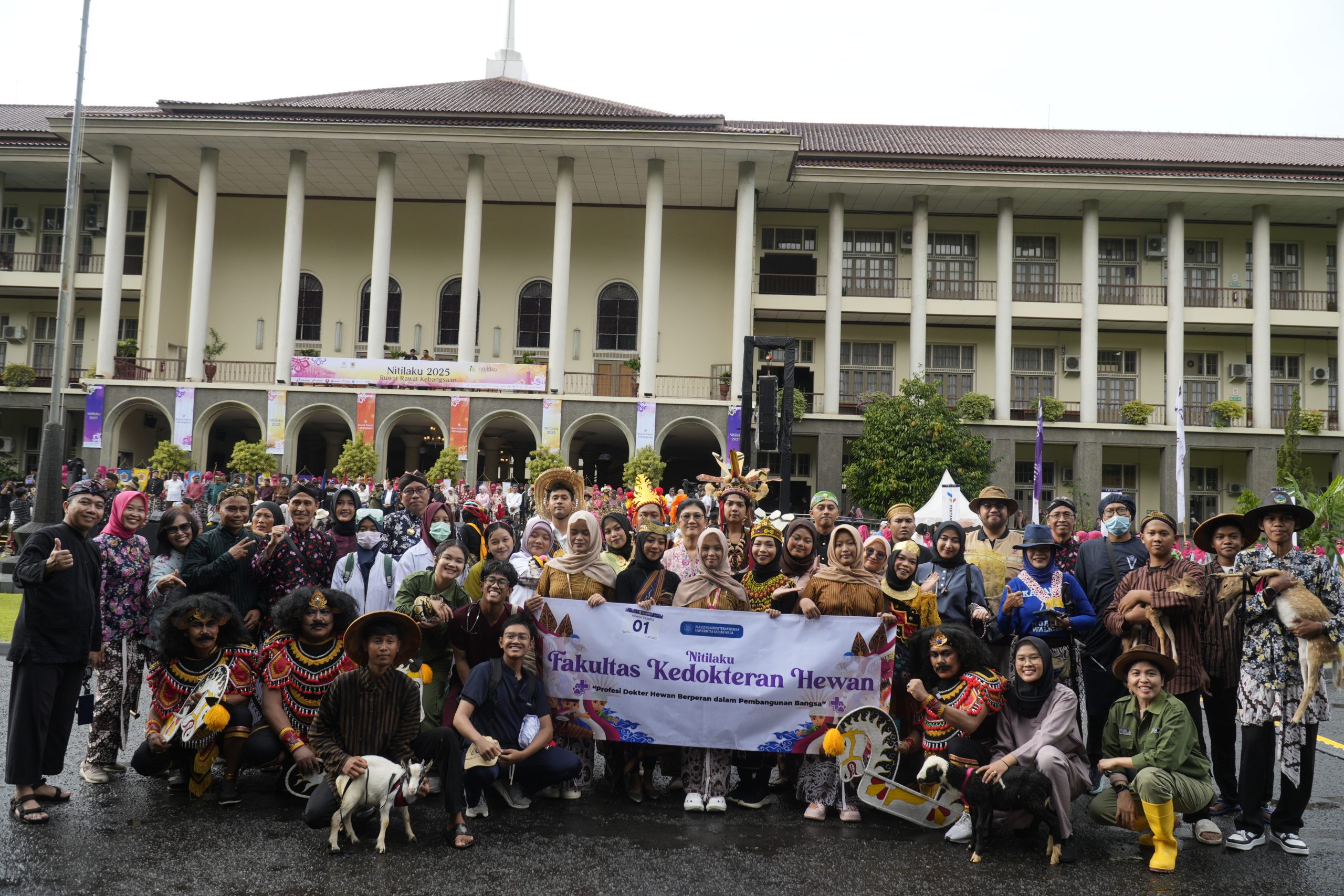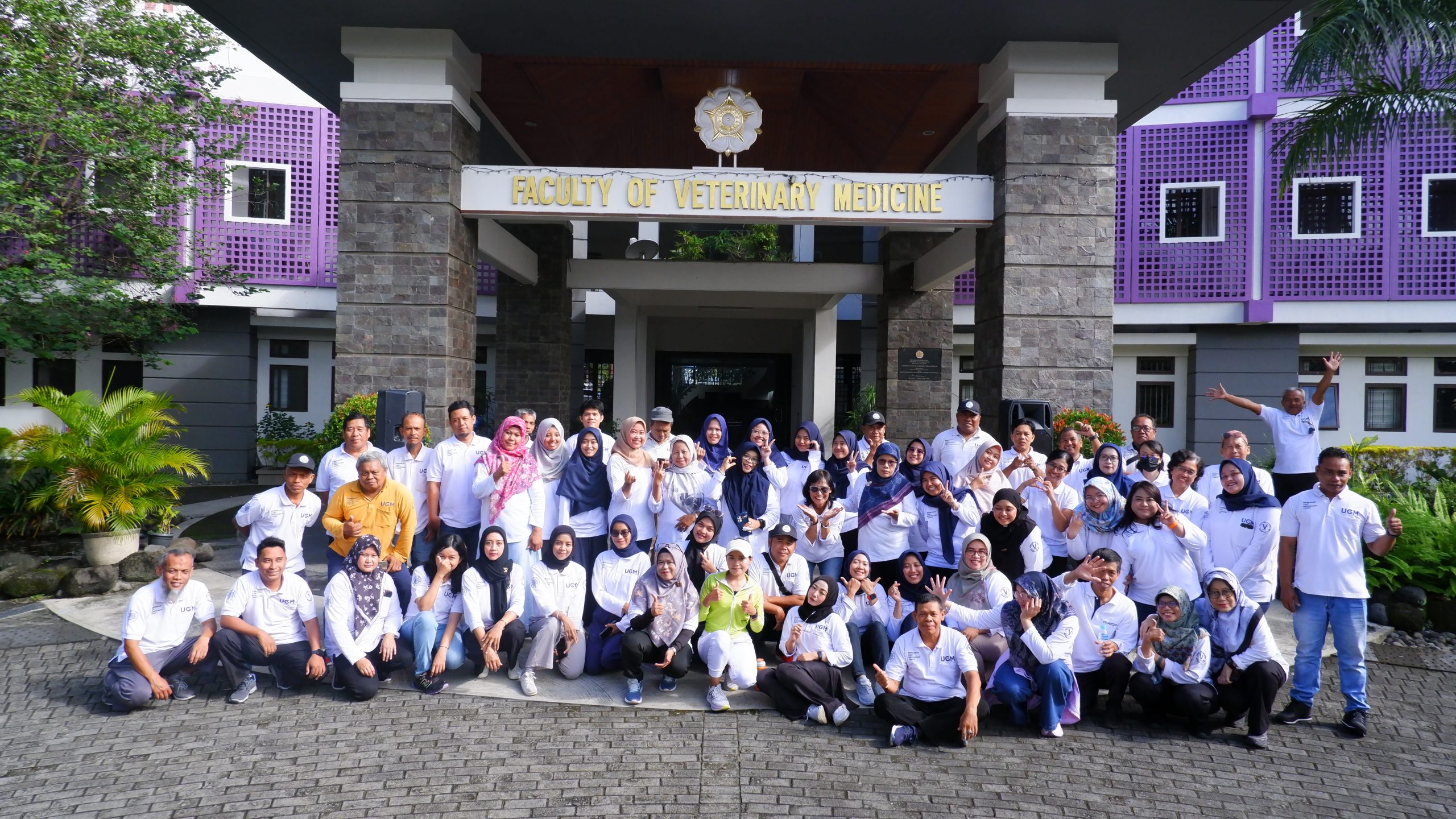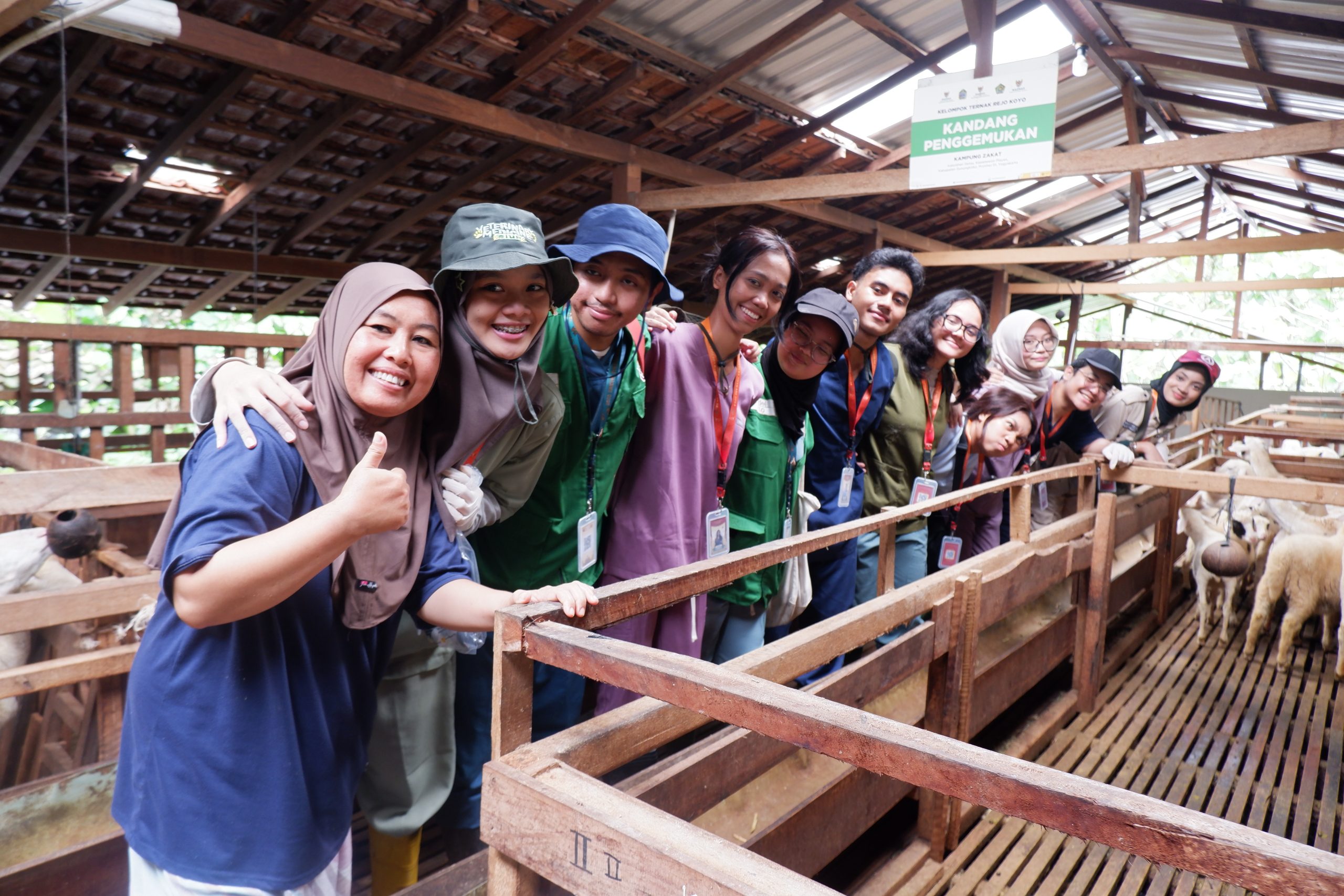PROGRAM EDUCATIONAL OBJECTIVES
The formulation of five-star veterinarians into the 6 domains of competencies.
| Vet Star | PEO | Domain | Domain of Competencies |
| 1 | Care provider | 1 | Professionalism, good ethical and moral |
| 2 | Ability to master animal health, veterinary science and technology | ||
| 2 | Decision maker | 2 | Ability to master animal health, veterinary science and technology |
| 4 | Ability to solve veterinary problem (control and prevention of animal diseases) | ||
| 3 | Communicator | 3 | Ability to harmonize one health: safety animal products, public health, animal welfare |
| 4 | Community leader | 5 | Ability to perform veterinary services and community |
| 5 | Manager | 1 | Professionalism, good ethical and moral |
| 3 | Ability to harmonize one health: safety animal products, public health, animal welfare | ||
| 5 | Ability to perform veterinary services and community | ||
| 6 | Suitable to commence a further course such as a veterinarian, specialization, and/or a course leading to a master/doctorate | ||
PROGRAM LEARNING OUTCOMES
Based on the UP-VMSP and VPESP Program Educational Objective as mentioned above, the Program Learning Outcomes (PLOs) of the UP-VMSP and VPESP have been formulated as follows. After completing the program, successful students become graduates who:
PROGRAM LEARNING OUTCOMES (PLO) of VMSP
| PLO 1 | General value: Faith in God, Having morals, ethics and good behavior in completing their duties; Excellence in academics and professional life; Responsible for the social welfare; Able to implement, develop and also enrich the veterinary – animal science field; Maintain an Indonesian moral value; Able to work independently or in group, creative, innovative and having entrepreneurship skills; Highly motivated, open minded; Possess a high working spirit, dedication and high commitment |
| PLO 2 | Mastering knowledge about basic concepts, principles and theories related to veterinary science |
| PLO 3 | Mastering skills in applying Science and Technology laboratory of biomedical anatomy, histology, physiology, biochemical, embryology, reproduction, clinical pathology, pathology, microbiology, parasitology, immunology, pharmacology, toxicology, radiology and Veterinary Public Health. |
| PLO 4 | Mastering skills in measuring physiological parameter and animal welfare. |
| PLO 5 | Able to analyze the way drugs work and toxin. |
| PLO 6 | Able to do agent identifications that are; virus, bacteria, parasite, fungi and toxin, and cause determination of animal diseases. |
| PLO 7 | Mastering skills in doing agent identification, such as; virus, bacteria, parasite, fungi and toxin, and cause determination of animal diseases. |
| PLO 8 | Mastering and understanding knowledge about zoonotical and non zoonotical animal diseases. |
| PLO 9 | Responsible to own job and can be given responsibility for the work result achievement of biomedical laboratory, such as; anatomy, histology, physiology, biochemical, embryology, reproduction, clinical pathology, pathology, microbiology, parasitology, immunology, pharmacology, toxicology, radiology, and veterinary public health. |
| PLO 10 | Able to compile formula and make animal food, compile formula and make veterinary clinical nutrition or clinical dietetic. |
| PLO 11 | Mastering knowledge about animal food and compile veterinary clinical nutrition or clinical dietetic |
| PLO 12 | Mastering knowledge about national animal health system, veterinary legislation also authority limits of medical veterinary. |
| PLO 13 | Able to analyze epidemiology and veterinary economic also compiling animal diseases reporting. |
| PLO 14 | Mastering skills in analyzing epidemiology and veterinary economic also compiling animal diseases reporting |
| PLO 15 | Able to do risk analysis, veterinary economic analysis |
| PLO 16 | Mastering skills in applying care management and health management in food-producing animals or livestocks, pets and companion animals, wildlifes and conservations, aquatic animals, and laboratory animals. |
| PLO 17 | Mastering skills doing scientific study by compiling research plan and report also forming scientific papers. |
PROGRAM LEARNING OUTCOMES (PLO) of VPESP
| PLO 1 | Having insight of veteriner ethic and comprehension towards the essence of profession vow and ethic code also baseline of veterinary profession; |
| PLO 2 | Having skills in doing: (a) clinical, laboratoric, patologic, and epidemiologic diagnosis of animal diseases; (b) Creating nutrition for medical health and disorder; (c) antemortem and postmortem examination; (d) pregnancy examination, handling of reproduction disorder and application of reproduction technology; (f) supervision and control of animal medicine quality and biological ingredients, including the usage and distribution; (g) assesment and supervision of animal welfare; |
| PLO 3 | Having skills in practicing lege-artis medical treatment. |
| PLO 4 | Having skills in handling some diseases in large animals, small animals, poultry, exotic animals |
| PLO 5 | Having skills in handling some diseases of wildlife, exotic animals and management at the zoo. |
| PLO 6 | Having skills in control and prevention management of strategic and Zoonoses diseases, biosecurity-biosafety, also environment control |
| PLO 7 | Having skills in ”therapeutic transaction”, doing anamnese, medical record, informed consent of medical treatment, prescription writing, doctor’s certificate, and client education; |
| PLO 8 | Able to decide therapy appropriately, mastering traditional medicines, mastering animal medicine quality, mastering therapy side effects |
| PLO 9 | Having insight in actualizing food self-sufficiency; |
| PLO 10 | Having insight in the field of national animal health system and eterinary legislation; |
| PLO 11 | Having skills in professional communication/ dialogue; |
| PLO 12 | Having basic knowledge of risk analysis, veterinary economic analysis and entrepreneurship. |
| PLO 13 | Able to do innovation in the field of medical veterinary aligned with improvement of biotechnology and genetic engineering; |
| PLO 14 | Able to do research, handling biological safety of animal diseases, and environment control; |
| PLO 15 | Well-communicate, able to cooperate in team; |
| PLO 16 | Able to make research proposal, able to compile seminar materials, delivering in form of presentation and poster, writing according to rules of scientific journals; |
| PLO 17 | Able to process research data, do the data analysis, take summary and decision correctly; |
| PLO 18 | Mastering leadership management aspect and doing it well; |





